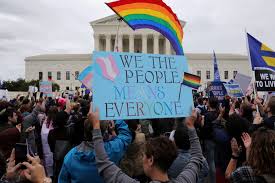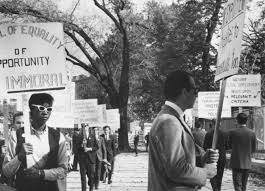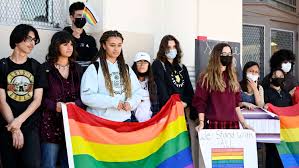The Importance of Allies in Supporting Marginalized Communities
Being an ally to marginalized communities is crucial in the fight for equality and social justice. Allies are individuals who support and advocate for groups that face discrimination and oppression based on their identities, such as race, gender, sexual orientation, or disability.
Allies play a significant role in amplifying the voices of marginalized communities, standing up against injustice, and creating inclusive spaces where everyone feels safe and valued. By using their privilege to challenge systemic inequalities and promote diversity, allies help bridge the gap between different groups and foster understanding and empathy.
One key aspect of being an effective ally is listening actively to the experiences and needs of marginalized communities without centering oneself. It is essential for allies to educate themselves on issues affecting these communities, engage in difficult conversations, and take action to dismantle oppressive structures.
Allyship is not just a title; it requires ongoing commitment and reflection. Allies must be willing to learn from their mistakes, acknowledge their privilege, and be open to feedback from those they seek to support. Building trust and cultivating genuine relationships with marginalized communities are essential components of being a reliable ally.
Ultimately, allies have the power to create positive change by using their influence to advocate for equity and justice. By standing in solidarity with marginalized groups, allies contribute to building a more inclusive society where everyone can thrive regardless of their background or identity.
It is important for individuals to recognize the impact they can have as allies and actively work towards creating a more just and equitable world for all.
9 Essential Tips for Being a Supportive and Effective Ally
- Listen actively to your allies’ experiences and perspectives.
- Show appreciation for your allies’ support and contributions.
- Respect the boundaries and preferences of your allies.
- Stand up against discrimination or injustice towards your allies.
- Communicate openly and honestly with your allies.
- Collaborate effectively with your allies towards common goals.
- Offer help and assistance to your allies when needed.
- Celebrate the achievements and successes of your allies.
- Educate yourself about the issues important to your allies.
Listen actively to your allies’ experiences and perspectives.
Listening actively to your allies’ experiences and perspectives is a fundamental aspect of effective allyship. By giving space for marginalized voices to be heard and truly understanding their lived experiences, you demonstrate respect and empathy towards their struggles. Engaging in active listening allows you to gain insight into the challenges faced by marginalized communities and helps you better support them in their fight for equality and justice. It is through attentive listening that meaningful connections are built, fostering trust and solidarity in the shared pursuit of a more inclusive and equitable society.
Show appreciation for your allies’ support and contributions.
Showing appreciation for your allies’ support and contributions is essential in fostering strong and meaningful relationships. Acknowledging the efforts of those who stand by marginalized communities demonstrates gratitude and reinforces the bond of solidarity. By expressing appreciation, allies feel valued and encouraged to continue their advocacy work, creating a supportive environment where collaboration and mutual respect thrive. Recognizing and thanking allies for their dedication helps strengthen the collective effort towards equality and social justice.
Respect the boundaries and preferences of your allies.
Respecting the boundaries and preferences of your allies is essential in building trust and fostering a supportive relationship. By honoring their boundaries, you demonstrate that you value their autonomy and agency. It is important to listen to their needs and preferences without imposing your own agenda or expectations. Respecting their boundaries shows that you are committed to creating a safe and inclusive space where they feel respected and heard. By prioritizing their comfort and well-being, you can strengthen your allyship and contribute to a more positive and collaborative environment for all involved.
Stand up against discrimination or injustice towards your allies.
It is crucial for allies to stand up against discrimination or injustice towards their marginalized counterparts. By actively challenging and addressing oppressive behaviors or attitudes, allies demonstrate their commitment to supporting and advocating for the well-being of those facing discrimination. Taking a stand against injustice not only shows solidarity with marginalized communities but also helps create a safer and more inclusive environment where everyone is treated with respect and dignity.
Communicate openly and honestly with your allies.
Effective allyship involves open and honest communication with fellow allies. By fostering transparent dialogue, allies can deepen their understanding of each other’s perspectives, experiences, and needs within marginalized communities. Honest conversations help build trust, strengthen relationships, and ensure that collective efforts are aligned towards promoting equality and social justice. Through open communication, allies can address challenges, share resources, and collaborate more effectively in advocating for the rights and well-being of marginalized groups.
Collaborate effectively with your allies towards common goals.
Collaborating effectively with your allies towards common goals is essential in creating meaningful and lasting change. By working together towards a shared vision of equality and justice, allies can leverage their strengths and resources to amplify their impact. Communication, coordination, and mutual respect are key elements of successful collaboration, enabling allies to pool their efforts and expertise in a unified front against discrimination and oppression. Through effective collaboration, allies can build stronger alliances, achieve collective goals, and create a more inclusive and supportive environment for marginalized communities.
Offer help and assistance to your allies when needed.
Offering help and assistance to your allies when needed is a fundamental aspect of effective allyship. By extending a supportive hand during challenging times, you demonstrate your commitment to standing in solidarity with marginalized communities. Whether it’s providing resources, lending a listening ear, or actively advocating for their rights, being there for your allies shows that you value their well-being and are dedicated to fostering a more inclusive and equitable society. Building strong relationships based on mutual support and respect is key to creating lasting change and promoting unity among diverse groups.
Celebrate the achievements and successes of your allies.
Recognizing and celebrating the achievements and successes of our allies is essential in fostering a supportive and inclusive environment. By acknowledging their contributions and accomplishments, we not only show appreciation but also validate their efforts in standing up for marginalized communities. Celebrating our allies’ wins helps strengthen our relationships, boost morale, and inspire further collaboration towards a common goal of promoting equality and social justice.
Educate yourself about the issues important to your allies.
To be a supportive ally, it is essential to educate yourself about the issues that are important to your allies. By taking the time to learn and understand the challenges and experiences faced by marginalized communities, you can better advocate for their rights and contribute meaningfully to their cause. Educating yourself shows a genuine commitment to standing in solidarity with your allies and empowers you to engage in informed discussions and actions that promote equality and justice for all.





Leave a Reply